Writing
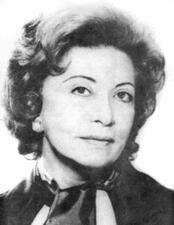
Elisa Lispector
Polish-born writer Elisa Lispector was nine years old when her family immigrated to Brazil in 1920. Alongside her successful career as a public servant, Lispector was a writer who published seven novels and three books of short stories. Her second novel is semi-autobiographical in its grappling with Lispector’s Jewish immigration story.
Literature Scholars in the United States
Jewish women have been among the key figures in literary scholarship in the United States in the postwar period. Those entering the profession in the 1950s faced more difficulties as women than they did as Jews. Today, Jewish women are found in all corners of the profession, from feminist and queer theory to administration, critical race studies, and beyond.
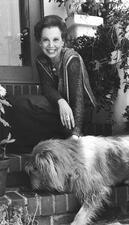
Myra Cohn Livingston
Both through her poetry and her teaching, Myra Cohn Livingston inspired children to explore the music of language. She eventually wrote more than twenty collections of as well as several books on writing poetry, serving as an inspiration for students to enjoy poetry.
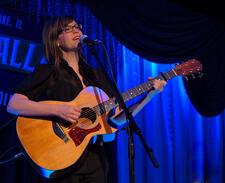
Lisa Loeb
Minnie Dessau Louis
Johanna Löwenherz
Johanna Löwenherz traveled widely on behalf of Germany’s socialist women’s movement, raising consciousness and lecturing on the social, economic, and legal equality of women. She became one of the most active representatives of the SDP in the Neuwied region, elected as a delegate to three regional party conferences.
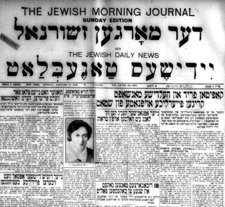
Rachel Luria
Rachel Luria (Rokhl Lurye) was a writer of Yiddish short fiction and investigative journalism in the early twentieth century. She was known for her complex and often cynical writing about immigrant life, especially in regards to portrayals of sexuality and gender.
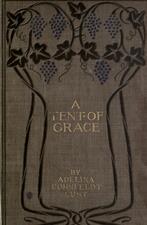
Adeline Cohnfeldt Lust
Adeline Cohnfeldt Lust was a writer who published two novels and numerous short stories, newspapers articles, and editorials over her trailblazing career as a Jewish woman in journalism in the early twentieth century.
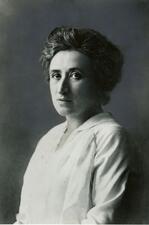
Rosa Luxemburg
Rosa Luxemburg was a socialist revolutionary known for her critical perspective. Born in Poland, Luxemburg had become an important figure in the world socialist movement by 1913. She argued against Lenin’s hierarchal conception of party organization, and against revisionism. Luxemburg was internationalist in orientation and unflinchingly dedicated to a radical democratic vision.
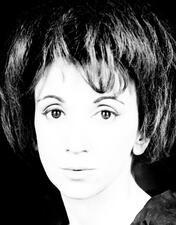
Judith Malina
Judith Malina was an actress, director, and producer who dedicated her life to creating avant-garde, politically charged theater works, and activism. She co-founded the experimental Living Theatre company with her husband; was involved in the antiwar movement, Women Strike for Peace, and the Industrial Workers of the World; and won many honors and awards for her acting and directing work.
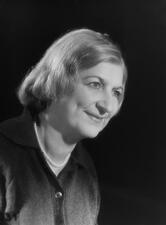
Clara Malraux
Journalist, essayist, novelist, and translator Clara Malraux spent her early life involved with antifascist activities and joined the French Resistance during World War II while in hiding with her daughter. Her work often describes her attempts to make a place for herself in a misogynistic and antisemitic society.
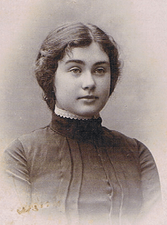
Anna Margolin
Despite her short writing career, Anna Margolin is regarded by literary critics as one of the finest early twentieth-century Yiddish poets in America. She was an active member of a circle of Jewish immigrant intellectuals in New York and her work influenced several major writers of her time, including the Yiddishist Chaim Zhitlovsky.
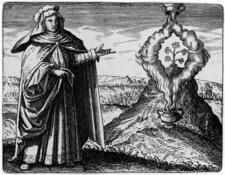
Maria the Jewess
Maria the Jewess was one of the founding practitioners in western alchemy, in the 1st–3rd centuries CE. She invented several types of chemical apparatus, ran a school of alchemy in Alexandria, Egypt, and was noted for her alchemical sayings. She is the earliest recorded Jewish woman to have published a book.
Miriam Markel-Mosessohn
Lenore Guinzburg Marshall
Lenore Guinzburg Marshall, novelist, poet, activist, and literary editor, pushed her publishing company to publish William Faulkner’s The Sound and the Fury after it had been rejected by twelve other publishers. She published her first novel, Only the Fear, in 1935 and her first poetry collection, No Boundary, in 1943, going on to write poetry, novels, short stories, essays, and a memoir.
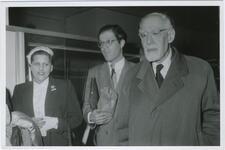
Lilli Marx
Born in Berlin, Lilli Marx emigrated to England as a young adult but returned to Germany, where she helped institute a national Jewish weekly newspaper and worked to create a dialogue between German society and the Jewish community. She contributed to the creation of several Jewish organizations, notably the League of Jewish Women, and continued to work in social work until her death.
Maskilot, Nineteenth Century
Nineteenth-century maskilot were Jewish women proponents of the Haskalah, who wished to take part in the cultural and social revolution it preached. Despite assumptions that the Haskalah was an exclusively male movement, a small number of women read Hebrew literature, wrote in Hebrew, and regarded themselves as part of the Haskalah movement.
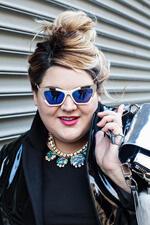
Nicolette Mason
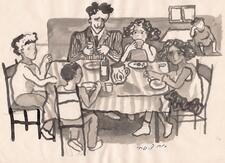
Ronit Matalon
Ronit Matalon was an Israeli writer of Egyptian heritage who wrote and published in Hebrew. She was the author of numerous works of fiction and essays and worked for many years as a journalist. Her work touches on Mizrahi identity, family, gender, and politics, and incorporates visual elements as well as cultural criticism.
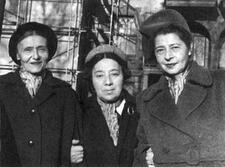
Ida Maze
Ida Maze was a “communitarian-proletarian” Yiddish writer who turned her Montreal home into a magnet for Yiddish writers and culture. After emigrating from Belarus to North America at age twelve in 1905, Maze began writing lyrical poems that were original and inspiring to young people.
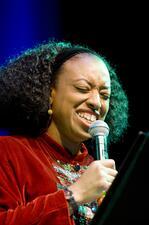
Yavilah McCoy
Medieval Hebrew Literature: Portrayal of Women
Stereotypes of women, “good” and “bad,” are found throughout the medieval Hebrew canon. The love poetry cultivated during the Golden Age in Muslim Spain seems to glorify and idealize women, but the female “beloved” is subject to the power of the male “gaze” and male rhetoric.
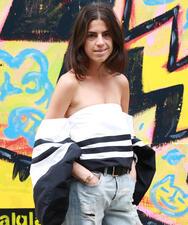
Leandra Medine
Martha Tamara Schuch Mednick
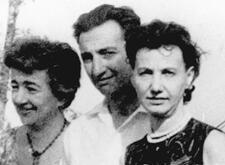
Vladka Meed
Vladka Meed was an underground courier who smuggled weapons to the Jewish Fighting Organization inside the Warsaw Ghetto while passing as a Christian outside its walls. In 1948 she published a memoir about her experiences, On Both Sides of the Wall. Meed received many awards for her work in Holocaust education and memorialization.


